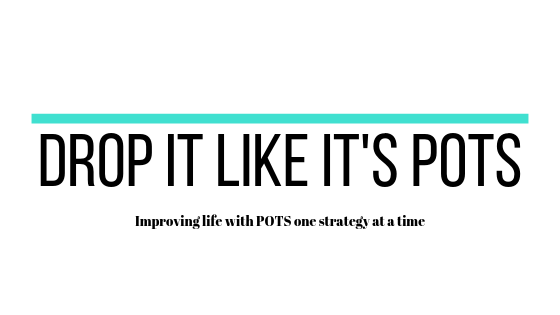I am pumped about this year’s conference. The topics are timely, intriguing, and I am thrilled to share my notes with you all.

Similar to previous years, I attend selected lectures that tend to be more specific in topic and are related to POTS, ME/CFS, and Long Covid. Therefore, these notes are not exhaustive to the entire conference.
Dysautonomia: Associations with Gastrointestinal Function, Joint Hypermobility, and Autoimmunity. By Jay Pasricha MD
- Dr. Pasricha discussed his study on JAG-A patients. JAG-A refers to a constellation of disorders including: joint hypermobility, autonomic dysfunction, gastrointestinal dysfunction, and autoimmunity.
- He treated 42 of his JAG-A patients with IVIG (intravenous immunoglobulin).
- The results showed highly significant improvement in overall quality of life (3-4 points of improvement on a scale that ranges from -7 to 7) and highly significant improvement in each gastrointestinal-related measure.
- The comparison group consisted of 7 “pseudo-controls”. They were not true controls because they were not randomized or blinded.
- Dr. Pasricha’s advice to other physicians is to not dismiss refractory symptoms to be “functional”. Functional GI disorders would include IBS, functional abdominal pain, etc.). He suggests that physicians look for the signs of joint hypermobility and autoimmunity in these patients.
- IVIG treatment may be indicated for GI patients with joint hypermobility or autoimmunity.
- Dr. Pasricha’s advice to patients interested in IVIG:
- Autoimmunity alone isn’t an indicator that the patients is a good candidate for IVIG. Insurance may balk at this.
- You need a doctor that is on board to do all the tests necessary to see if there are multiple autoimmune disorders or immune deficiencies.
- Joint hypermobility may be an easier path to IVIG because IVIG is indicated for connective tissue diseases.
- Immunologists are most likely to prescribe IVIG and find the criteria necessary for this treatment.
- Lauren Stiles (the president of Dysautonomia International) said that preliminary research indicates that Dyautonomia patients do well with lower dose (1g/kg bodyweight) of IVIG compared to the normal dose (2g/kg bodyweight).
- The gastric emptying test is not very reliable on its own to diagnose motility disorders. It has to be interpreted in the context of what is going on in the patient.
- IVIG ramps down the immune response via modulation, but does not suppress it like traditional immunosuppressants. For this reason, Dr. Pasricha prefers IVIG. That being said, IVIG is not benign and can bear side effects. The most common side effect is headaches.
Autoimmunity and Mast Cell Activation in POTS. By Taylor Doherty MD.
- Dr. Doherty has POTS himself. It developed after an infection he picked up in Europe.
- 20-50% of POTS patients have some sort of acute infection trigger similar to Dr. Doherty. Many different pathogens can trigger POTS..
- Other POTS triggers include: surgery, pregnancy, vaccine, and concussion. This is not an exhaustive list.
- 16% of POTS patients have a comorbid autoimmune disease. Autoimmunity tends to flock together so this is not surprising.
- There are some autoantibodies associated with POTS (ex. angiotensin 2, muscarinic cholinergic, and adrenergic).
- The types of autoantibodies present differ among patients. This could explain the heterogeneity of POTS symptoms/presentation.
- Potential treatments targeting the autoimmune component of POTS (Dr. Doherty was treated with all of these along the way):
- IVIG- Has been shown to increase the functional ability and decrease the Compass 31 score in POTS patients.
- Plasmapheresis
- Rituximab
- 9% of POTS patients have MCAS
- Omalizumab may be used to treat MCAS. It is a monoclonal antibody treatment.
- The histamine blocker famotidine also stimulates the vagus nerve which attenuates inflammatory cytokine activity.
- Dr. Doherty promotes the “3 leg stool model” for POTS treatment
- Symptomatic medications ex. beta blocker, ivabradine, etc.
- Lifestyle ex. Sleep, salt, compression, fluids, diet, etc.
- Targeting underlying causes ex. autoimmune, EDS, structural, etc.
- SCIG (sub cutaneous immunoglobulin) may be the wave of the future as it can be self-administered and has a lower incidence of side effect compared to IVIG.
If you have attended any of the lectures, what did you learn?
Disclaimer: I am not a medical professional. Statements on this site are not meant to be taken as medical advice. These statements reflect my personal experiences having mild-ish post-viral POTS and ME. Due to the wide spectrum of these diseases, comorbidities, and everyone being different, your experiences may be very different than mine.
Note: If you post a comment, this site does NOT have a feature to notify you of responses to your comment. I have not found a good solution for that yet. However, I usually respond to every comment in a timely manner, so be sure to check back.








